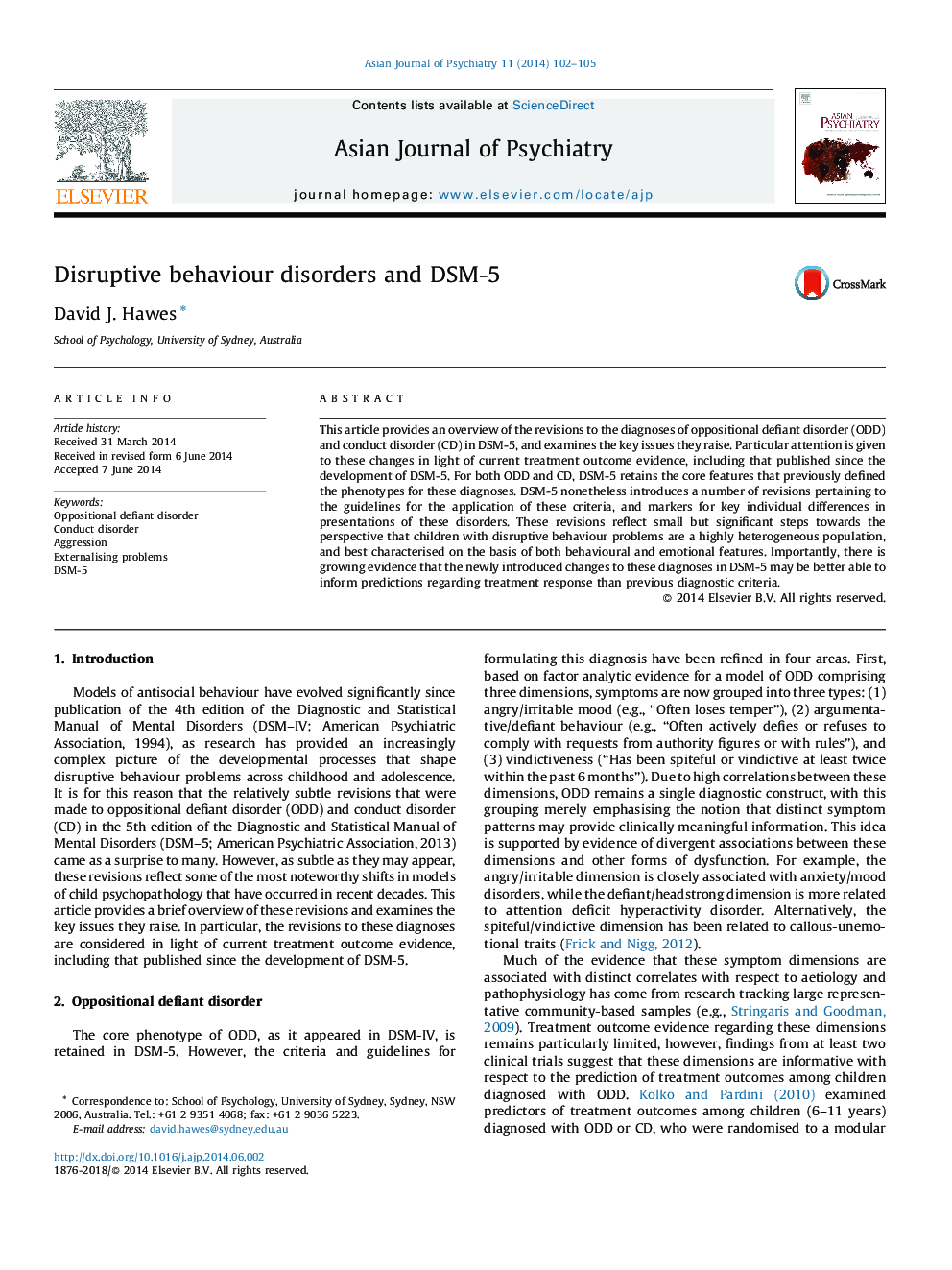| Article ID | Journal | Published Year | Pages | File Type |
|---|---|---|---|---|
| 316834 | Asian Journal of Psychiatry | 2014 | 4 Pages |
This article provides an overview of the revisions to the diagnoses of oppositional defiant disorder (ODD) and conduct disorder (CD) in DSM-5, and examines the key issues they raise. Particular attention is given to these changes in light of current treatment outcome evidence, including that published since the development of DSM-5. For both ODD and CD, DSM-5 retains the core features that previously defined the phenotypes for these diagnoses. DSM-5 nonetheless introduces a number of revisions pertaining to the guidelines for the application of these criteria, and markers for key individual differences in presentations of these disorders. These revisions reflect small but significant steps towards the perspective that children with disruptive behaviour problems are a highly heterogeneous population, and best characterised on the basis of both behavioural and emotional features. Importantly, there is growing evidence that the newly introduced changes to these diagnoses in DSM-5 may be better able to inform predictions regarding treatment response than previous diagnostic criteria.
